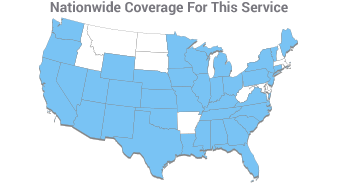ASTM F2789 – Mechanical and Functional Characterization of Nucleus Devices
The ATS Family of Companies (FoC) provides a range of mechanical and functional tests for characterizing nucleus devices. A nucleus device can replace or augment the nucleus pulposus in an intervertebral disc without replacing the entire disc. This procedure aims to restore movement and loads to a diseased spinal level without using vertebral fusion devices.
A relatively new solution to degenerative disc disease, nucleus devices require careful and thorough testing. The ASTM standard helps implant manufacturers:
- Compare devices with different designs and materials
- Quantify static and dynamic properties of nucleus devices
- Quantify the performance of nucleus devices
Static and Dynamic Testing
As a third-party provider of medical device testing, the ATS FoC lends its credible reputation to manufacturers ready for in vitro testing. Our medical device testing lab houses powerful equipment for a variety of mechanical tests. We can perform the static and dynamic tests called for by ASTM F2789:
- Axial Compression Test
- Axial Torsion Test
- Shear Test
- Flexion/Extension Test
- Lateral Bending Test
Clients can select the tests relevant to their devices and request additional controls. For example, we offer testing in force/moment control or displacement/angle control until functional failure or run out. Our dynamic tests can combine flexion/extension, axial rotation, axial loading, and lateral bending motions. Additionally, we can carry out dynamic tests in ambient, dry conditions or in a saline bath held at 37˚C.
Function Tests
ATS FoC can also perform function tests included in ASTM F2789. For instance, we can determine the lifting force of a hydrated nucleus replacement device after fluid absorption. Following ASTM F2267, we explore the device’s subsidence and stiffness. Finally, we can anticipate mechanical changes due to age-dependent materials. Upon request, our experts may provide additional chemical analysis with the following methods:
ASTM F2789 Analysis
Our experts provide rigorous testing and thorough analysis, including particulate analysis, wear analysis, and degradation analysis. We can inspect nucleus devices for mechanical failure, measure migration, and detail the functional failures to provide manufacturers with precise and accurate information.
Why Choose the ATS FoC?
The ATS FoC consists of expert engineers and technicians at many locations nationwide. With multiple A2LA-accredited labs capable of chemical analysis, mechanical testing, and more, we help medical devices reach the market faster. Our seasoned experts can test your medical implant for regulatory compliance and performance.
Call +1 (888) 287-5227 or complete the form on this page to request nucleus device testing according to ASTM F2789.

Request Form
"*" indicates required fields
Medical Device Testing
ASTM Testing
- ASTM F1044 Shear Testing of CaP and Metallic Coatings
- ASTM F1160 Shear and Bending Fatigue of Coatings
- ASTM F1264 Intramedullary Fixation Device Testing
- ASTM F1357 Articulating Total Wrist Implant Testing
- ASTM F1378 Shoulder Prostheses Testing
- ASTM F1541 ESFD Testing
- ASTM F1672 Patellar Prosthesis Testing
- ASTM F1714 Gravimetric Wear Assessment of Prosthetic Hip Design in Simulator Device Testing
- ASTM F1717 Spinal Implant Testing
- ASTM F1781 Elastomeric Flexible Hinge Finger Total Joint Implants Testing
- ASTM F1798 Spinal Implant Subassembly Testing
- ASTM F1820 Modular Acetabular Device Strength Testing
- ASTM F1829 Glenoid Locking Mechanism Shear Testing
- ASTM F1875 Fretting Corrosion Testing of Hip Implant Interfaces
- ASTM 2009 Modular Prostheses Taper Connection Testing
- ASTM F2025 Wear Assessment of Polymeric Components
- ASTM F2028 Glenoid Loosening Testing
- ASTM F2077 Intervertebral Body Fusion Device Testing
- ASTM F2183 Small Punch Testing
- ASTM F2193 Spinal Fixation Components
- ASTM F2267 Measuring Subsidence of Intervertebral Fusion Devices
- ASTM F2346 Standard and Dynamic Testing of Artificial Intervertebral Discs
- ASTM F2423 Wear and Fatigue Testing of Total Disc Prostheses
- ASTM F2502 Absorbable Plate and Screw Testing
- ASTM F2554 CAS System Precision Testing
- ASTM F2624 Static, Dynamic, and Wear Testing of Extra-Discal Spinal Implants
- ASTM F2624 Spinal Implant Dynamic Testing
- ASTM F2694 Lumbar Total Facet Prosthesis Testing
- ASTM F2706 Spinal Implant Fatigue Testing
- ASTM F2789 Mechanical and Functional Characterization of Nucleus Devices
- ASTM F2790 Static and Dynamic Testing of Total Facet Prostheses
- ASTM F382 Metallic Bone Plates Testing
- ASTM F384 Angled Orthopedic Fixation Testing
- ASTM F543 Metallic Medical Bone Screw Testing
- ASTM F564 Metallic Bone Staple Testing
ISO Testing
- Biocompatibility Testing for Medical Devices ISO 10993
- ISO-10328 Structural Testing of Lower Limb Prosthetics
- ISO 10993 Biocompatibility
- ISO 10993 Biocompatibility Testing
- ISO 10993 Testing
- ISO 10993 Testing Lab
- ISO 18192-1 Wear Testing for Intervertebral Disc Prostheses
- ISO 12189 Fatigue Testing of Flexible Spinal Implants
Medical Device Testing
- Fatigue Testing Lab
- Implant Testing
- Material Testing Laboratory
- Material Device Regulatory Compliance Testing
- Medical Device Testing
- Medical Device Testing Certification
- Medical Device Materials Testing
- Medical Device Materials Testing Consulting
- Medical Device Mechanical Testing
- Medical Device Mechanical Testing Regulations
- Medical Device Performance Testing
- Medical Device Product Testing
- Medical Device Reliability Testing
- Medical Device Standards Testing
- Medical Device Standards Testing Certifications
- Medical Device Testing Companies
- Medical Device Testing Services
- Medical Device Testing Lab
- Medical Implant Testing Lab
- Orthopedic Device Testing
- Prosthetic Testing
- Prosthetic Testing Services
